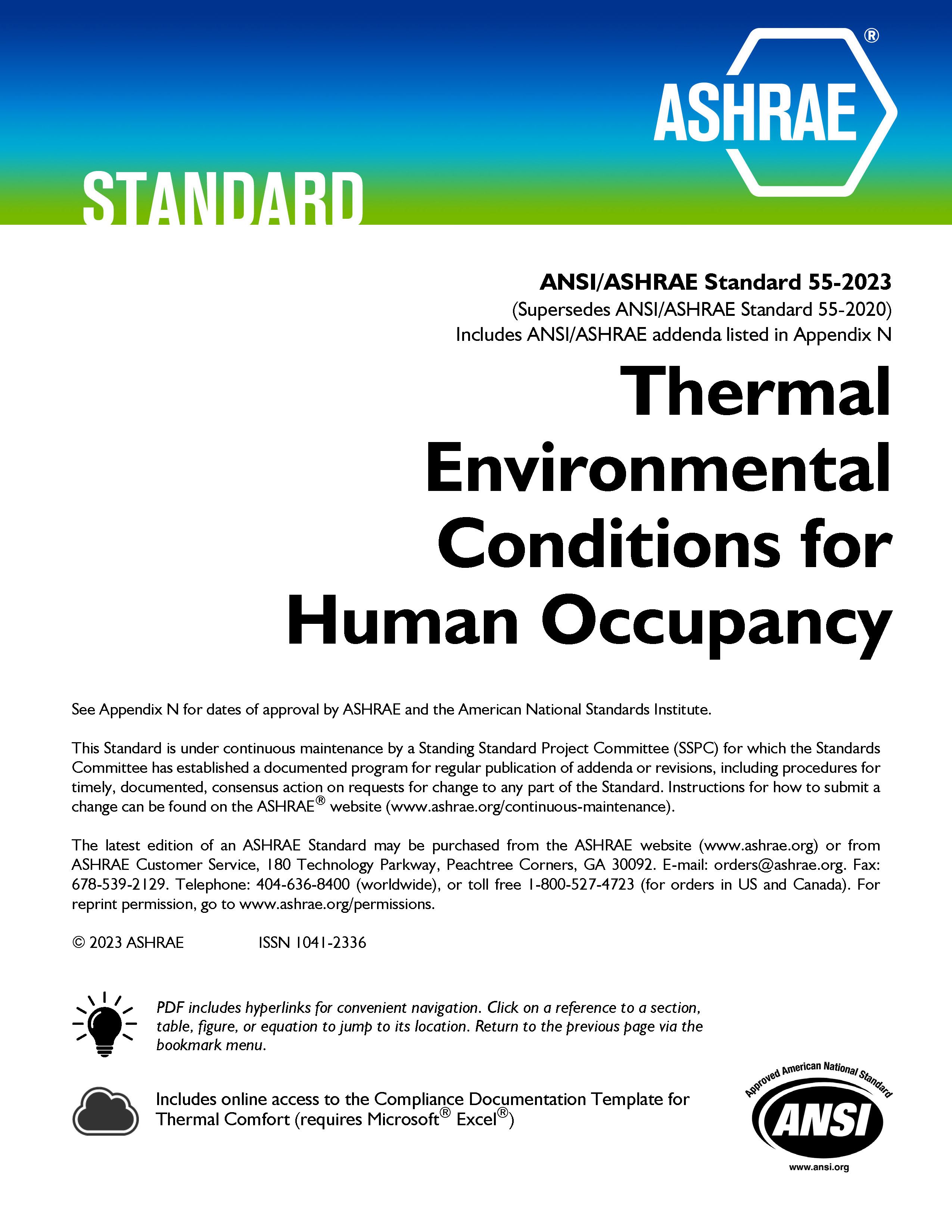ANSI/ASHRAE Standard 55
Thermal Environmental Conditions for Human Occupancy

The 2023 edition of ANSI/ASHRAE Standard 55, Thermal Environmental Conditions for Human Occupancy, has been updated with major improvements and simplifications to the two sections that make up the heart of the standard: determining satisfactory thermal environment in occupied spaces and compliance documentation. The methods for determining satisfactory thermal environments have been consolidated and simplified to two—standard and adaptive—and a new flow chart provides guidance on how to apply the appropriate thermal comfort models for each method. Documentation requirements have been updated with additions, clarifications, and simplifications, and a new example spreadsheet compliance form replaces the previous form. The updated standard also covers a wider range of metabolic rates and includes a new method for assessing local thermal discomfort with vertical air temperature gradient between head and ankle level.
Environmental factors (temperature, thermal radiation, humidity, and air speed) and personal factors (activity and clothing) combine in complex ways to create indoor thermal conditions, and personal comfort levels vary from one occupant to another. Standard 55 is designed to specify those combinations of factors that result in satisfactory thermal conditions for a majority of occupants, with criteria for evaluating comfort in existing buildings, as well as requirements and calculation procedures for design compliance.